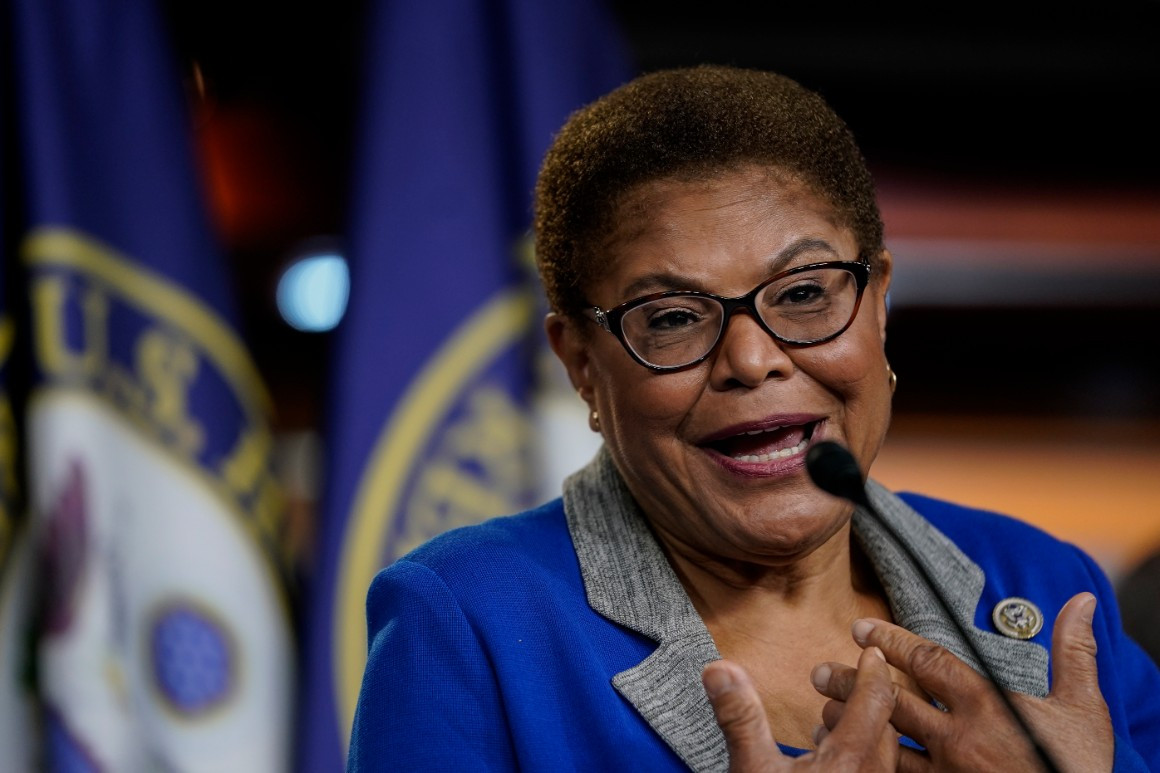
New Paths for Legal Education Should Be Considered
Reconsidering the ABA's monopoly on accrediting law schools is a worthwhile endeavor, but some notes of caution are in order.
Editor's Note: Part of Civitas Outlook's "Texas and the Future of Legal Education" Symposium.
Higher education accreditation is a boring and thankless task. Independent accrediting bodies develop standards that meet federal Department of Education guidelines. Those groups hold schools to those standards. If schools meet those standards, they are eligible for higher education funding and loans. Most Americans could not name accrediting bodies like the Higher Learning Commission or the Middle States Commission on Higher Education. An exception is the American Bar Association.
The ABA has long had public-facing liberal political positions. In recent years, for instance, it has regularly rated Republican-appointed judicial nominees, controlling for other factors, as less qualified than those appointed by Democrats. It “remains committed to supporting reproductive choice” and weighed in on a recent controversy involving the abortion drug mifepristone. It believes the Equal Rights Amendment is currently enacted as the Twenty-Eighth Amendment to the Constitution.
The Section on Legal Education and Admissions to the Bar is the ABA’s accrediting arm for law schools in the United States. The Section is ostensibly independent of the ABA. But if a relationship with the ABA brand remains, and as long as the ABA’s House of Delegates retains some power to review the decisions of the Section, that independence will be met with understandable skepticism to the outsider who regularly sees the ABA’s public-facing ideological progressive positions.
The Section is hardly immune to controversy. After the Supreme Court’s decision in Students for Fair Admissions v. Harvard, the Section originally retained Standard 206, which required that law schools demonstrate a commitment to having a student body that is “diverse with respect to gender, race. and ethnicity.” The Section received pushback, and in 2024, it moved to eliminate the provision. That amendment also received pushback from a number of law school faculty and deans. So the Section moved in the other direction with an amendment to Standard 206. It required a law school “demonstrate by concrete actions” a commitment to “diversity, inclusion, and access to the study of law and entry into the legal profession for all persons including those with identities that historically have been disadvantaged or excluded from the legal profession due to race, color, ethnicity, religion, national origin, gender, gender identity, gender expression, sexual orientation, age, disability, military status, Native American tribal citizenship, and/or socioeconomic background.”
This explicit race-based language quickly drew the attention of the Trump administration, and in a series of repetitive notices, the Section has indicated it will suspend implementation of the Standard. This is no surprise. The ABA has regularly capitulated to the demands of the federal government with respect to its accreditation standards. In 1995, it entered a settlement with the Department of Justice for having standards that were too stringent. In 2016, it faced challenges from the Department of Education for being too lax and likewise implemented changes. In short, pressure from the federal government can make an accrediting body like the Section change its practices.
The Section has increasingly micromanaged the decisions of law schools—decisions that often increase the costs for legal education with no assessment of any corresponding benefit to students. A new batch of rules requires “learning outcomes” on course syllabi to match each other across sections and to be reviewed regularly, along with obligations for faculty to engage in “educational activities that promote effective teaching.” Another proposed rule requires minimum thresholds of costly “experiential” education in all institutions, with micromanagement about the timing and the type of experiences. These changes may be beneficial or detrimental to a given institution. But they undoubtedly increase costs, both for the institution to implement them and for the institution to keep a record of them as proof to the accreditor.
Most states have further empowered the ABA by requiring that bar exam test-takers must graduate from an ABA-accredited law school. This separate requirement is a creation of state supreme courts and can easily be undone. State supreme courts, such as those in Florida and Texas, are now considering whether the ABA should maintain its monopoly on accrediting law schools. It is a worthwhile endeavor, but some notes of caution are in order.
First, many state bars have been exploring alternative pathways to licensure. These reforms typically assume graduates of ABA-accredited law schools are the only appropriate licensed attorneys and aim to provide multiple ways for them to become practitioners. Rather than reforming the two-day, $1000 bar exam, innovative state bars should look to reform the three-year, six-figure cost of legal education.
Second, what one state does can have a significant ripple effect outside the state, and its effects might be unanticipated. Suppose Texas were to require all bar exam test-takers to have taken a course in Evidence. Some law schools already require this. Others do not. Inside Texas, law schools may start requiring Evidence, simply because most graduates of Texas schools would take the Texas bar. Outside the state, law students in Maine, Montana, or Alabama who might want to take the Texas bar may learn too late that this is a requirement.
Third, deregulation may not be as significant as one might expect. Suppose Texas were to permit graduates of any accredited school, whether accredited by the ABA or some other body, to take the bar exam. Most existing law schools, including those in Texas, would still maintain ABA accreditation, allowing their graduates to practice in the other 49 states.
Experiments with deregulation have had limited success and some significant failures. California permits graduates of schools accredited by the state, regardless of whether they are accredited by the ABA, to take the bar exam, along with graduates of unaccredited institutions. They are less expensive than ABA-accredited schools, but most of these schools have high bar failure rates. (An exception is San Joaquin, which serves the Fresno region without any ABA-accredited competition and outperforms many ABA schools.)
Nevertheless, state supreme courts should begin to explore ways to break the ABA’s grip on legal education. If the ABA continues to demand more conditions—and more expensive conditions—on law schools, state bars should no longer feel beholden to increasingly unreasonable demands. But state supreme courts must work carefully to create effective alternatives.
One promising solution is to empower existing schools to create legal programs outside the ABA’s purview and permit graduates of those programs to pass the bar exam. Law schools already offer myriad degrees, including LLM and Master’s degree programs, that fall outside the ABA’s accrediting arm. And rather than have the state bar dictate the terms of the programs, let law schools (or other colleges and universities) come up with those programs, subject to some outer bounds of what is permissible (say, a two-year minimum period of education, or a minimum of 60 academic credits).
Success can be easily measured by looking at how graduates of those programs ultimately perform on the bar exam. If graduates of these programs pass at a first-time rate of, say, at least 70%, and if they pass within two years at an 80% rate, the program could be deemed acceptable in the eyes of the state.
If a school wanted to offer a two-year program with a one-year apprenticeship, it could do so. Or an eighteen-month program followed by an experiential component as a capstone. Whatever the case, alternative pathways permit schools to innovate. If graduates pass the bar, that is the measure of success. It allows innovation and flexibility. The state bar can always revisit these programs to determine if they are ineffective or if graduates of these programs face malpractice allegations or discipline at higher rates than other attorneys.
The ABA will likely remain an accrediting body with significant influence on legal education throughout the United States. But state supreme courts can rightly consider whether alternatives to the ABA’s monolithic and costly model are appropriate.
Derek T. Muller is a professor of law at the University of Notre Dame.
Politics
.webp)
Liberal Democracy Reexamined: Leo Strauss on Alexis de Tocqueville
This article explores Leo Strauss’s thoughts on Alexis de Tocqueville in his 1954 “Natural Right” course transcript.
%20(1).avif)
Long Distance Migration as a Two-Step Sorting Process: The Resettlement of Californians in Texas
Here we press the question of whether the well-documented stream of migrants relocating from California to Texas has been sufficient to alter the political complexion of the destination state.
%20(3).avif)
Who's That Knocking? A Study of the Strategic Choices Facing Large-Scale Grassroots Canvassing Efforts
Although there is a consensus that personalized forms of campaign outreach are more likely to be effective at either mobilizing or even persuading voters, there remains uncertainty about how campaigns should implement get-out-the-vote (GOTV) programs, especially at a truly expansive scale.

California job cuts will hurt Gavin Newsom’s White House run
California Governor Gavin Newsom loves to describe his state as “an economic powerhouse”. Yet he’s far more reluctant to acknowledge its dramatically worsening employment picture.

An anti-woke counter-revolution is sweeping through the media
From Hollywood to the newsroom, the hegemony of the ‘progressives’ is finally faltering.

What Adam Smith’s Justice Teaches Us About Stealing Benefits
There is a constant tension in liberal systems between the shared trust necessary for the system's survival and the use of public entitlements paid for at public expense.

The Family Policy Symposium
How should we approach the problems of family formation and fertility decline in America?




%20(1).jpg)









